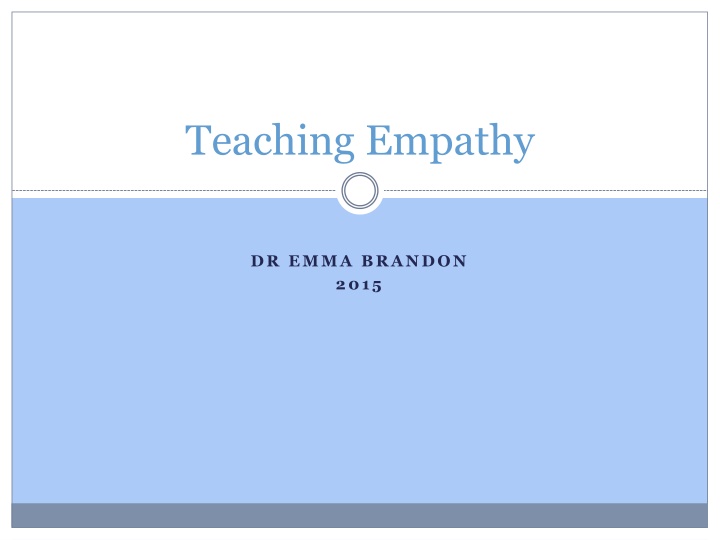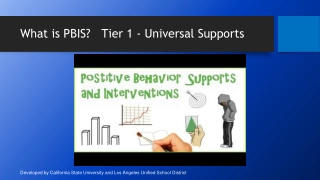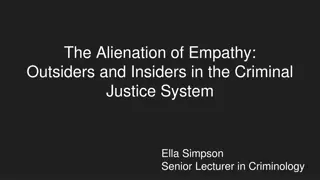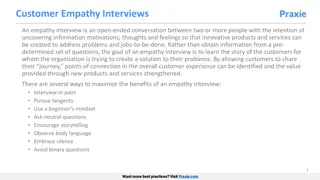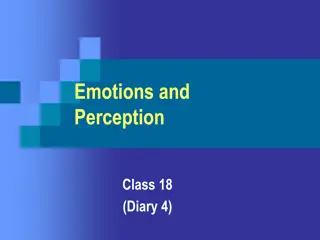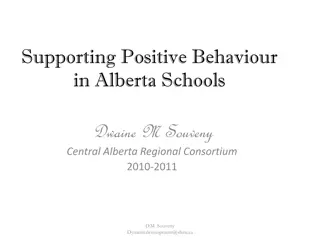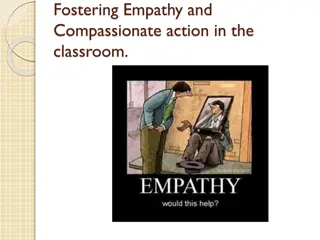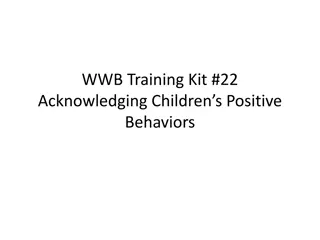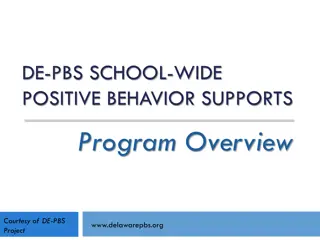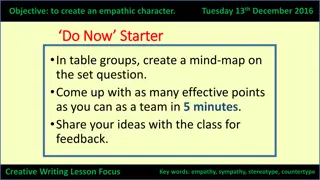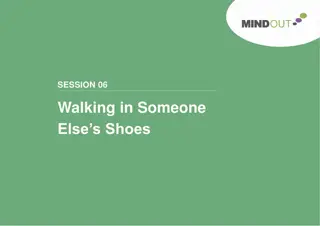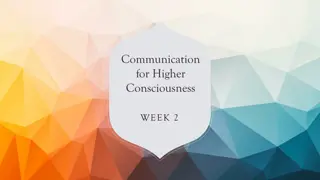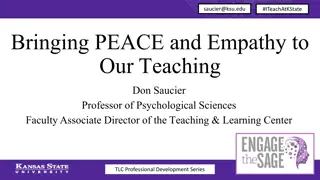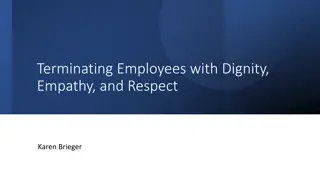The Importance of Empathy in Promoting Positive Behavior
Empathy is the ability to understand and share the feelings of others. It involves self-awareness, perspective-taking, and emotional regulation. Developing empathy is crucial for fostering pro-social behavior, effective communication, and reducing burn-out. Teaching empathy involves recognizing struggling individuals, promoting emotional intelligence, and encouraging self-awareness and sympathy. The Golden Rule and Platinum Rule are key principles in secular ethics that emphasize treating others with respect and consideration. Cultivating empathy in trainees requires overcoming prejudices, maintaining non-judgmental attitudes, and showing genuine interest in others.
Download Presentation

Please find below an Image/Link to download the presentation.
The content on the website is provided AS IS for your information and personal use only. It may not be sold, licensed, or shared on other websites without obtaining consent from the author.If you encounter any issues during the download, it is possible that the publisher has removed the file from their server.
You are allowed to download the files provided on this website for personal or commercial use, subject to the condition that they are used lawfully. All files are the property of their respective owners.
The content on the website is provided AS IS for your information and personal use only. It may not be sold, licensed, or shared on other websites without obtaining consent from the author.
E N D
Presentation Transcript
Teaching Empathy DR EMMA BRANDON 2015
What is Empathy ? A sense of self-awareness & ability to distinguish own feelings from others Taking another person s perspective Being able to regulate one s own emotions Caring for people & wanting to help them Discerning what another person is thinking/feeling Ability to feel & share another person s emotions Altruistic Other-aware
What is Empathy ? Cognitive empathy- recognising the emotion Emotional empathy- experiencing the emotion Compassionate empathy- we want to help the other person deal with the situation & emotions Difficult part is taking action that truly helps another Neurological basis; Theory of Mind & Empathy Emotional Intelligence
Emotional Intelligence Ability to monitor one s own & other s emotions To discriminate between emotions To label them appropriately To use emotional information to guide thinking & behaviour Greater mental health, exemplary job performance, better leadership skills, increases empathy Perceive emotions, understand emotions, use them & manage them
Why is Empathy important ? Important survival skill Sensing distress in a companion may help you recognise a threat Develops early in children Promotes pro-social behaviour, positive mental states and increases helping behaviours Aids effective communication Helps reduce burn-out Increases effectiveness
Secular Ethics Golden Rule treat others as you want to be treated Platinum Rule Treat others as they want to be treated
Promoting Empathy With trainee: Recognise a struggling trainee Tools to assess Empathy and Emotional Intelligence Encourage Mind-mindedness, sympathy & self- awareness in feedback/CBD/assessments Differences hinder empathy; recognise prejudices Don t have to like someone Recognise our judgements of people be interested in others
Promoting Empathy Trainees may avoid emotions in their patients Use role play Validate the other person s perspective Encourage them to put aside their point of view Promote flexibility View videos and critique listening skills Listening with eyes, ears, instincts, heart Practising empathic phrases Focus on ICE Help trainees access their emotions
Other Strategies Practice active listening (in general life too) Share in other people s joy Look for commonalities with others Read fiction Pay attention to faces Cultivate curiosity in others/other cultures Challenge prejudices/look for commonalities Listen hard & open up Ask other person to explain their position
Potential Problems Confusing empathy with sympathy Becoming over-involved Blurring of professional boundaries Not housekeeping the consultation Emotional burnout Longer consultations initially Repeat attendance by patients/over-reliance on doctor It is a complex skill !
Importance Allows more advanced communication More effective communication Better outcomes for patients Better mental health and reduced burnout for doctors Reduced complaints A broader life experience Meets professional competencies
